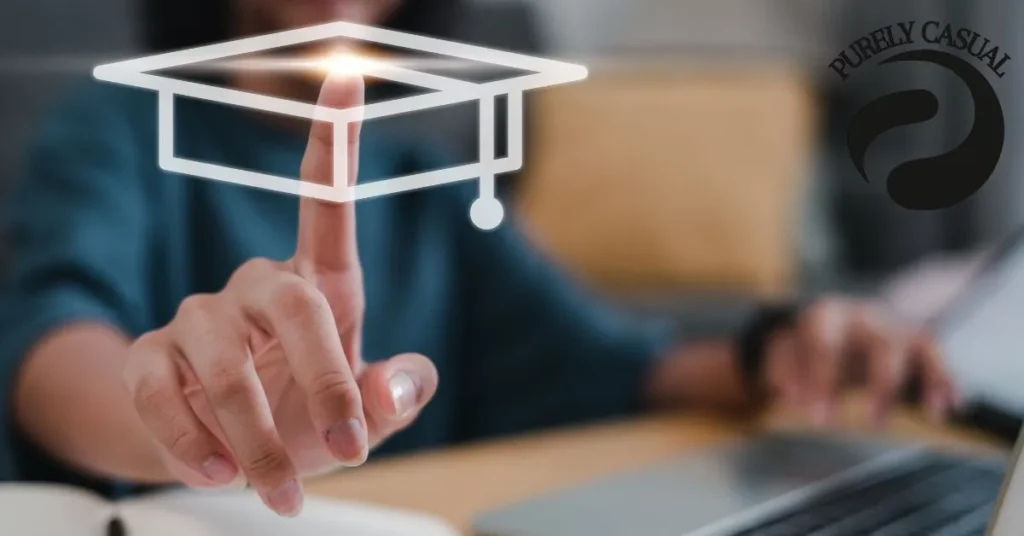The term “Порофессор” is a playful adaptation of the word “Профессор” (Professor). It combines humor with a serious academic role, creating a unique identity for educators who incorporate humor in technical education. This persona represents a professor who uses humor to break the monotony of highly technical subjects, making complex concepts more accessible.
Humor in technical education is not common. Many engineering fields are seen as rigid and heavily focused on precision and logic. The humorous educator breaks this stereotype by blending technical rigor with light-heartedness. This approach helps students and professionals feel more engaged during lectures or presentations.
The value of humor in technical learning goes beyond just creating a fun atmosphere. Research shows that humor can improve information retention and make difficult concepts easier to understand. For example, using analogies or jokes to explain automotive systems can help bridge the gap between theory and practice.
In the context of engineering, humor can also play a role in creating a positive learning environment. It reduces stress, fosters openness, and encourages students to ask questions. This makes the learning process more collaborative and effective. Moreover, educators who use humor often leave a lasting impression, making the content memorable.
The humorous educator phenomenon is more than just a teaching style. It represents a shift toward more engaging and interactive education methods. This change is especially beneficial in STEM fields, where traditional teaching methods can be dry and intimidating. Embracing humor in these settings makes learning a more dynamic and enjoyable experience.
Table Of Contents
The Humorous Educator Archetype: Characteristics and Traits
Who Can Be a Humorous Educator?
A humorous educator is someone who combines expertise with humor. They are often senior professionals, lecturers, or engineers who teach complex topics in a simple way. They stand out because they make technical subjects approachable without losing accuracy.
Anyone with a strong understanding of a technical field and a sense of humor can become a humorous educator. They don’t need to be comedians. Instead, they use humor as a teaching tool to keep students focused and interested.
Famous examples include university professors known for their creative teaching styles. They use jokes, storytelling, or visual analogies to explain concepts. This keeps the audience engaged and helps them learn better.
Unique Teaching Style of a Humorous Educator
A humorous educator simplifies difficult content using humor. For example, they might explain a car’s internal system using everyday metaphors. This makes even complex automotive engineering relatable.
They also create a relaxed atmosphere in class. Students feel more comfortable asking questions or discussing issues openly. Humor helps break down barriers and makes the educator more approachable.
Another strategy is to use humorous case studies or examples. By connecting technical jargon with fun scenarios, the humorous educator makes sure that students remember the material. This approach also helps reduce anxiety in subjects that are typically seen as intimidating.
Impact of a Humorous Educator on Students and Colleagues
A humorous educator has a lasting impact on students. They create a memorable learning experience. This often leads to better understanding and retention of technical knowledge.
Colleagues are also influenced by this teaching style. Many begin to adopt similar strategies, making the overall learning environment more engaging. This creates a ripple effect, leading to more dynamic and interactive classrooms.
A relaxed classroom setting can also lead to increased participation. Humor encourages students to share their thoughts and collaborate more. This helps build a stronger learning community.
The Dual Role: Balancing Humor and Professionalism
The Thin Line: Humor vs. Professionalism
A humorous educator must balance humor and professionalism. Humor can lighten the mood, but it must not overshadow the core message. This requires skill to maintain respect and authority.
Sometimes, using too much humor can lead to loss of focus. Technical subjects require precision, and excessive jokes can blur the main point. A successful humorous educator knows when to switch between light-hearted and serious tones.
Understanding the audience is also key. In some cultures, humor may be viewed as inappropriate in a professional context. The humorous educator needs to judge when humor will enhance understanding and when it might cause confusion.
The Humorous Educator in the Automotive Industry
Humor is particularly useful in complex fields like automotive engineering. This industry deals with complicated systems and technical terminology. The humorous educator uses humor to make these topics less intimidating.
For instance, explaining engine dynamics using funny analogies helps students grasp the content. They might compare a car’s engine to a well-coordinated kitchen. This helps beginners visualize how different components work together.
Humor also makes repetitive topics more engaging. Automotive engineering often involves detailed calculations and technical specs. The humorous educator uses humor to keep the audience attentive during lengthy sessions.
Bridging the Gap Between Theory and Practice
One of the main roles of a humorous educator is to connect theory with real-world applications. Humor is effective in creating these links. It makes abstract theories relatable through funny real-life examples.
For example, they might compare a car’s fuel efficiency to a lazy person’s energy levels. This helps students see the practical impact of fuel consumption. Such comparisons make it easier to understand theoretical concepts.
Bridging theory and practice is essential for engineers. Many struggle with applying theoretical knowledge in real-world scenarios. A humorous educator bridges this gap, helping students connect classroom learning with industry practices.
Also read:https://purelycasual.com/conrad-peutinger-ii-1475/
Becoming a Humorous Educator: Tips for Aspiring Technical Educators
Knowing Your Audience: Engineers and Technical Students
Understanding your audience is the first step to becoming a humorous educator. Engineers and technical students value accuracy and clarity. They have a low tolerance for irrelevant content.
Know what type of humor works best for this group. For instance, tech-related jokes or real-life engineering anecdotes are preferred. Avoid humor that seems too general or disconnected from the topic.
Adapt your humor based on the audience’s experience level. Beginners may need simpler analogies, while advanced learners can appreciate more sophisticated humor. Knowing your audience ensures that your humor supports, rather than distracts from, the lesson.
Crafting a Personal Humorous Educator Style
Every humorous educator has a unique style. Some use visual humor, like funny diagrams or cartoons. Others rely on verbal humor, using puns, wordplay, or jokes to simplify concepts.
Find your strength and build on it. If you have a talent for storytelling, use it to make technical scenarios more engaging. If you are good at visual representation, create humorous sketches to explain concepts.
Consistency is key. If you start with humor, keep it light throughout the session. Switching between very formal and humorous tones can confuse the audience. A consistent style helps maintain focus and makes your personality memorable.
Avoiding the Pitfalls: When Humor Fails
Humor is powerful, but it can also backfire. One common mistake is overusing jokes. Too much humor can reduce credibility, especially in highly technical discussions.
Avoid humor that could be misinterpreted. Some jokes might seem offensive or inappropriate depending on the audience’s culture or background. This is particularly risky in diverse engineering classrooms.
Another pitfall is using humor at the wrong time. Serious discussions about safety or ethics should not be interrupted with jokes. Timing and context are essential to keep humor relevant and effective.
Using Humor to Enhance Technical Content
Humor should enhance, not replace, technical accuracy. Start by understanding the core content thoroughly. This will help you build jokes or analogies that are not misleading.
For example, use humor to explain complex formulas or models. Compare engineering concepts to real-world activities, like cooking or sports. This makes content easier to remember without sacrificing technical depth.
Test your material before using it in class. What seems funny to you may not resonate with others. Run your jokes or examples by colleagues or friends first. Refining your humor ensures it contributes positively to the learning experience.
Building Confidence as a Humorous Educator
Confidence is crucial for using humor effectively. A hesitant delivery can ruin even the best joke. Practice delivering your material with confidence.
Start small if you are unsure. Use one or two jokes initially, and gauge the reaction. Gradually expand your humorous content as you become more comfortable.
Remember, the goal is not to be a stand-up comedian. The aim is to make technical education engaging. With practice and patience, you can master the art of balancing humor and professionalism, becoming an effective humorous educator.
Conclusion
The humorous educator is more than just a funny teacher. They are a bridge between complex technical knowledge and effective communication. Their ability to blend humor with precise technical content creates a learning experience that is both informative and engaging.
Humor in technical education breaks down barriers. It makes intimidating subjects more approachable and creates a positive atmosphere for learning. By making complex concepts easier to understand, a humorous educator helps students and professionals retain knowledge longer.
Becoming a humorous educator requires balancing humor with professionalism. Educators who master this balance can transform the way technical education is delivered. In doing so, they set a new standard for teaching in STEM fields, encouraging others to adopt similar techniques.
The influence of a humorous educator extends beyond the classroom. Their style impacts how future engineers and professionals view technical subjects. By making learning fun and engaging, they shape more confident and curious learners who are better prepared to tackle real-world engineering challenges.
In the future, the role of humor in technical education is likely to grow. As more educators embrace this approach, the legacy of the humorous educator will continue to inspire a new generation of engineers and technical experts.
FAQs
What is a humorous educator?
A humorous educator combines expertise with humor to make complex subjects more accessible. This persona leverages light-heartedness while maintaining academic rigor, creating an engaging learning environment.
Why is humor important in technical education?
Humor helps break down complex ideas, making them easier to understand and remember. It also creates a positive atmosphere, encouraging participation and reducing stress among students.How can humor be used in engineering education?
Humor can be introduced through analogies, funny examples, or light-hearted visuals to explain complex engineering concepts. This approach keeps students engaged and helps them grasp challenging material.
What are some common pitfalls to avoid when using humor in technical education?
Overusing jokes can distract from the main content, while humor that is culturally insensitive can alienate students. Timing is also crucial, as serious topics should be treated with the appropriate gravity.
Can anyone become a humorous educator?
Yes, anyone with a strong grasp of their subject matter and a good sense of humor can adopt this teaching style. It requires practice and an understanding of how humor can enhance learning.
What impact does a humorous educator have on students?
Humorous educators create memorable learning experiences that enhance understanding and retention of technical knowledge. They often foster a more collaborative and open classroom environment.
How can I develop my own humorous educator style?
Start by observing what types of humor resonate with your audience. Gradually incorporate humor into your teaching, refining your approach based on student feedback and engagement.
Is humor appropriate in all technical fields?
Humor can be applied in most technical fields, but the style and frequency should be tailored to the context. In more serious areas, humor should be used sparingly and with sensitivity.
What are the benefits of humor in professional engineering settings?
Humor improves communication and encourages creative problem-solving. It can help teams bond and create a more positive work environment, enhancing collaboration.
Can a humorous educator be effective in online learning?
Absolutely! Humor can enhance online education by making lectures more engaging. However, it must be crafted carefully to ensure it translates well in virtual formats.







